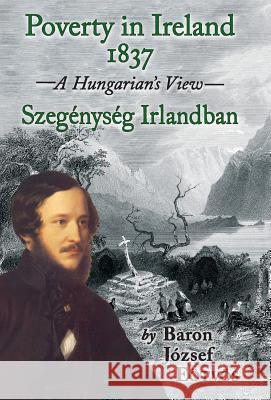Poverty in Ireland, 1837: A Hungarian's View : Szegenyseg Irlandban » książka
Poverty in Ireland, 1837: A Hungarian's View : Szegenyseg Irlandban
ISBN-13: 9781908420206 / Angielski / Twarda / 2018 / 222 str.
In 1837, the power of Daniel O'Connell's oratory focused the attention of Europeans on Ireland. They were horrified at what they saw there. The Irish poor - a third of the population - had no food except the potatoes they grew, and not enough clothing to cover themselves. They went hungry for two months of the year, and half-naked for all the year. Yet this would be their last 'good' decade before more than a million of them would vanish into unmarked graves in the 1840s. The idealistic young Baron Eotvos - a humanitarian and already a much-praised poet - struggled to understand how Ireland could have been reduced to this state under English rule, and why English journalists wrote with such bigotry about the Irish. In Hungary, he was a campaigner for the freedom of serfs, but conceded that those serfs lived in better conditions and had more protection than Irish tenants and labourers. The only protection for the Irish poor came from illegal organizations such as the Whiteboys. His visit coincided with a pivotal moment in Irish history, when debate was raging about the introduction of a 'Poor Law' (with Poor Tax to pay for it) - a charitable-sounding term for a cruel Act aimed at clearing the land of people who had no other means of survival. His deeply researched summary of the English occupation of Ireland - uninfluenced by modern revisionism - makes compelling, often harrowing reading.











